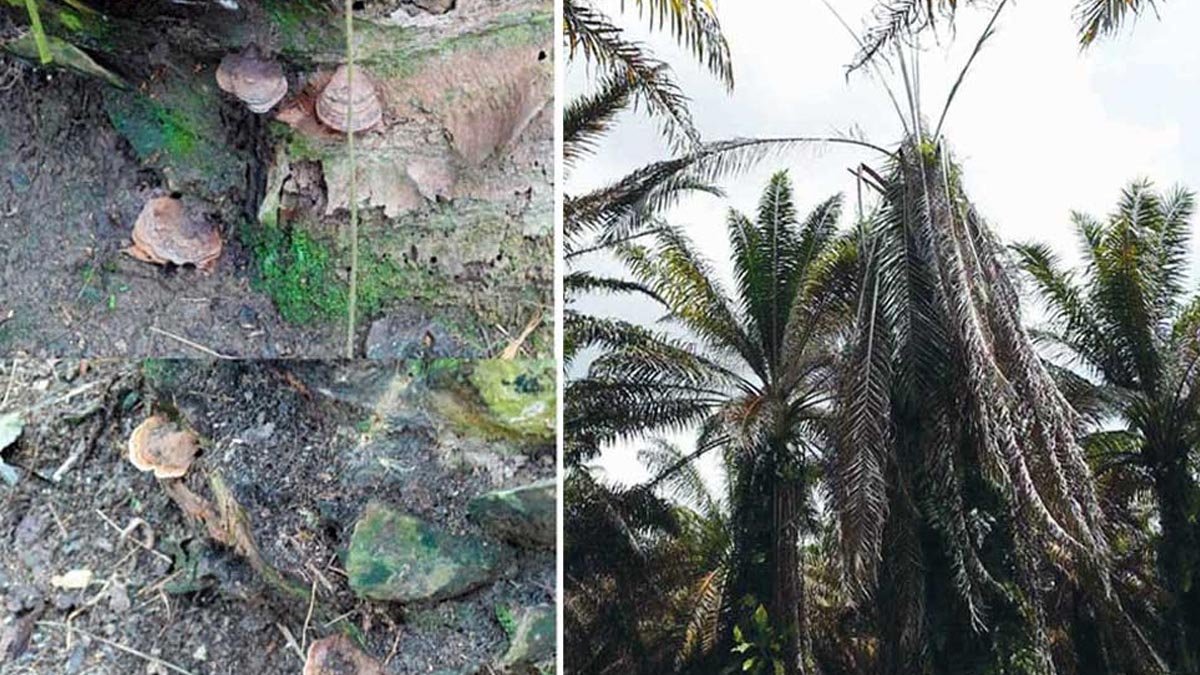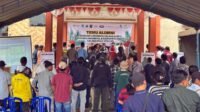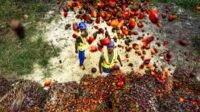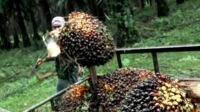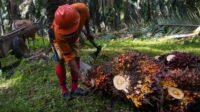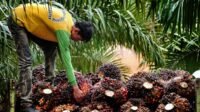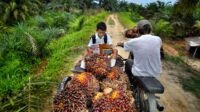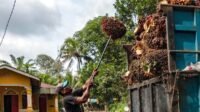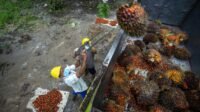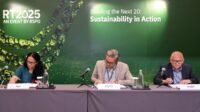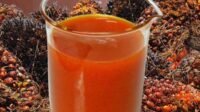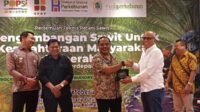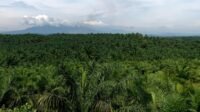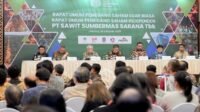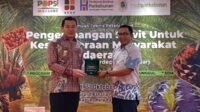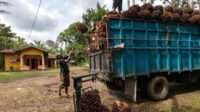PALMOILMAGAZINE, BANDUNG — Students from the Biology Study Program at the Faculty of Science and Technology, Universitas Islam Negeri (UIN) Sunan Gunung Djati (SGD) Bandung have achieved national recognition by winning one of the 40 awards in the 2025 National Palm Oil Research Competition. Their winning project focuses on combating Ganoderma boninense, the fungal pathogen responsible for basal stem rot — one of the most serious threats to Indonesia’s oil palm industry.
The team, led by Raysha Trythatya Nurhaidha along with Nursyafira Asma Humaira, Ratmanuha Putri Mulyawan, and Silmi Aulia Putri, developed an innovative approach combining in vitro (laboratory testing) and in silico (computer-based simulation) methods to identify biological control agents capable of suppressing Ganoderma effectively and in an environmentally friendly manner.
“This innovation was born out of our concern over the severe impact of Ganoderma on national palm oil productivity. Through a scientific approach, we aim to deliver a sustainable solution that can be directly implemented in the field,” Raysha explained, as reported by Palmoilmagazine.com from UIN SGD Bandung on Tuesday (Aug 5, 2025).
Also Read: Andalas University (UNAND) Reinforces Commitment to Sustainable Palm Oil Industry
The research was supervised by Musa’adah, S.Si., M.Biotech., who provided continuous guidance from the proposal stage through the competition’s rigorous selection process. The event, which began in March 2025, culminated in the announcement of the winners in July.
This achievement marks an important milestone for UIN SGD Bandung. Beyond strengthening the university’s presence in national research, it showcases the tangible contribution of Islamic higher education institutions to advancing the palm oil industry toward more sustainable practices.
As part of their award, the team will receive funding to continue their research for eight months, from August 2025 to April 2026. The next phase will focus on testing the effectiveness of the selected biological agents and formulating an implementation strategy that farmers and industry stakeholders can adopt.
Indonesia, as the world’s largest palm oil producer, continues to face numerous challenges, including crop diseases like Ganoderma, which cause billions of rupiah in losses annually. Competitions like this serve as vital platforms for gathering fresh ideas from the younger generation to address the real-world challenges of the agricultural sector.
The UIN Bandung team’s discovery brings fresh hope in the ongoing fight against Ganoderma. More than just an academic triumph, their success proves that innovation can emerge from anywhere — even from a modest laboratory at the foot of Mount Manglayang, where scientific passion and dedication continue to thrive. (P2)

